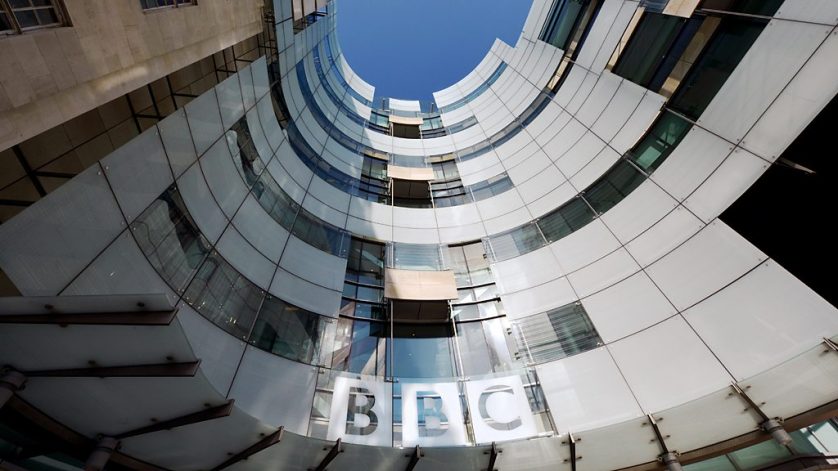The BBC is a publicly funded broadcasting organisation that operates a range of television and radio services. As a public entity, the BBC is accountable to its viewers and listeners, who expect transparency, impartiality and fairness in its operations. One area that has received significant attention and scrutiny is the BBC Board – its members and their remuneration.
The salaries, benefits and public exposure of these individuals have been the subject of public debate, with some questioning whether they are justified give the BBC’s status as a public service. In this article, we examine the remuneration of BBC board members and explore some of the arguments for and against their compensation packages.
BBC Board – Executives
The BBC board is responsible for ensuring and protecting the independence of the BBC, making sure it remains solely aligned with its commitments to inform, educate and entertain and promotes the UK public.
Richard Sharp – Chairman
Richard Sharp was appointed to the BBC board in 2021 after a selection process by the UK Government, though he has been the subject of several widespread debates on BBC impartiality after extensive links to serving Government ministers were uncovered. A veteran of the finance world, Sharp served as a Partner at Goldman Sachs for over two decades, with stints serving on the Bank of England’s Financial Policy Committee.
Sharp commits just 3-4 days per week and receives an annual compensation package of £160,000 to serve as Chairman.
Tim Davie – Director General
The Director General of the BBC is effectively the day-to-day CEO of the organisation and it’s Editor-in-Chief, holding responsibilities for editorial, operational and creative. He took up the role after a selection process to replace Tony Hall in 2020. Davie has served within the BBC organisation for several decades, overseeing the merger of BBC Worldwide and production arm into BBC Studios, the commercial arm of the public service broadcaster – delivering revenues in excess of £1.4bn to the BBC.
He is paid £525,000 per year to lead the organisation. It is worth noting that he was likely to earn significantly more in his previous role as CEO of BBC Studios.
Charlotte Moore – Chief Content Officer
As Chief Content Officer, Moore is responsible for all creative and editorial decisions, including commissioning, acquisitions, scheduling and programming. She oversees a content budget of £2.9bn (2022) and sets the strategy for spending this across the BBC’s television, radio and online platforms.
She joined the BBC in 2006 in the commissioning department and successive promotions saw her as Controller of Daytime Television and BBC One. In 2016, she took on responsibility for the content strategy across all BBC television channels and iPlayer. She eventually added radio to her responsibilities in 2020.
She joined the BBC board in 2022 and earns £425,000 a year.
Leigh Tavaziva – Chief Operating Officer
Tavaziva is the COO for the BBC organisation and has oversight for a number of key functions, including Finance, Operations, Technology & Production, Transmission, Legal & Business Affairs, Real Estate and Procurement.
She joined the BBC as COO in 2021 having led British Gas’ UK customer organisation and implemented sweeping changes for the business during her two-decade career at the FTSE100 organisation.
As the BBC’s Chief Operating Officer, she reports directly to Tim Davie (Director General), and pockets a £400,000 salary. Tavaziva is one of the most recent additions to the BBC Board, having joined in February 2023.
Deborah Turness – CEO, BBC News & Current Affairs
A successful businesswomen within the TV news world, Turness was widely tipped to secure the Director of BBC News role after Fran Unsworth announced her departure.
Turness joined the BBC in September 2022 having previously served as CEO for ITN. There, she led the business’ growth strategy and continued to operate the ITV News and Channel 4 News operations. Before this, Turness was the first global president for NBC News International as the US network looked to expand internationally. Her earlier career saw her work as a producer, editor and journalist for ITV News, Channel 4, and 5 News.
She is expected to be paid £400,000 per year and sits on the BBC board.
Non-Executive Directors
These board members do not hold a senior executive position at the BBC. Hence they are independent and provide oversight and strategic guidance to the executive team listed above. The Non-Executive Directors will ensure the BBC is always fulfilling its commitments to inform, educate and entertain with all major decisions that need to be made.
The board members bring different skillsets from a variety of industries, and they may serve on multiple boards at any one time. At the BBC, the board members run several committees to oversee certain aspects of the organisation and the Chairs of each committee receives an additional payment for their time.
Full details for the BBC Board’s Non-Executive Director remunerations is here:
- Shumeet Banerji – £33,000
- Damon Buffini – £38,000 (Receives an additional £5,000 as serving as Chair of the BBC Commercial Board)
- Elan Closs Stephens – £43,000 (receives an additional £5,000 as Chair of Wales Committee, another £5,000 as interim Chair of Northern Ireland Committee)
- Shirley Garrood – £38,000 (receives an additional £5,000 as Chair of the Audit Committee)
- Robbie Gibb – £43,000 (receives an additional £5,000 as Chair of England Committee, another £5,000 as Chair for Remuneration Committee).
- Muriel Gray – £38,000 (receives an additional £5,000 as Chair of the Scotland Committee)
- Ian Hargreaves – £38,000 (receives an additional £5,000 as Chair of Fair Trading Committee)
- Nicholas Serota – £38,000 (receives an additional £5,000 as Chair of Editorial Guidelines and Standards Committee)

